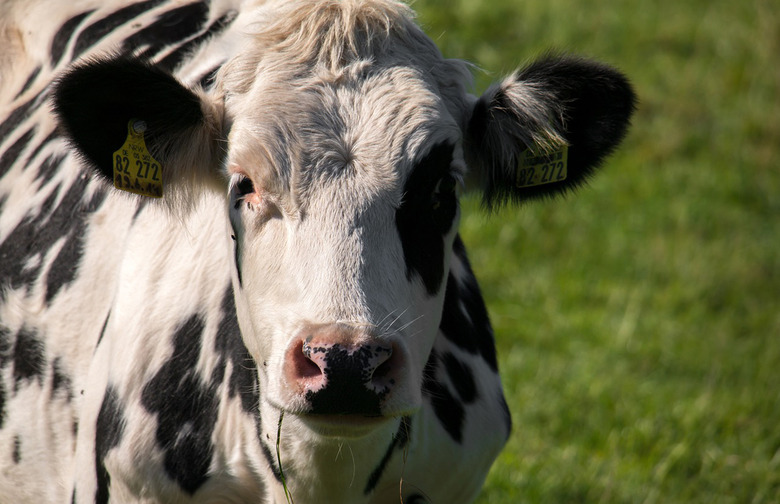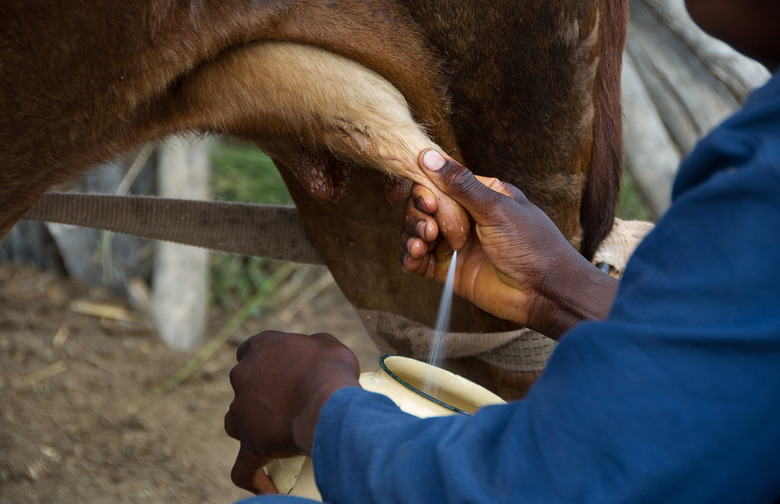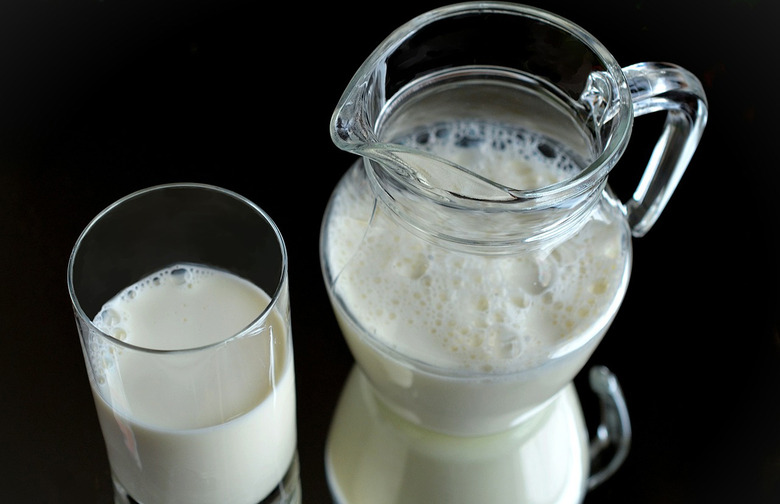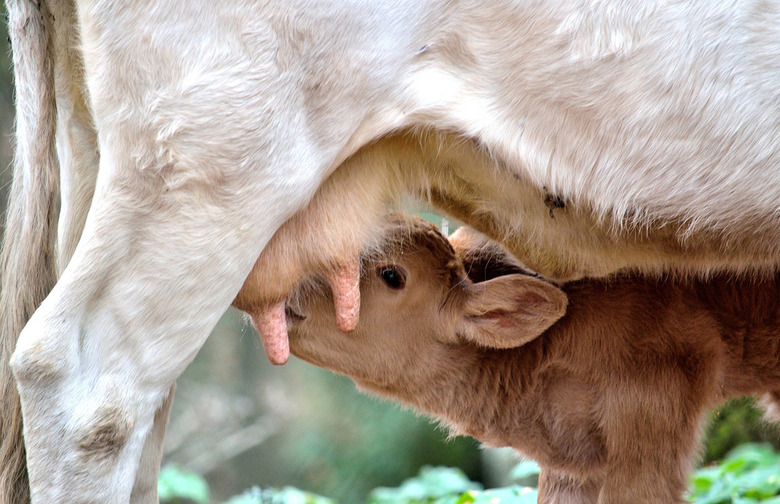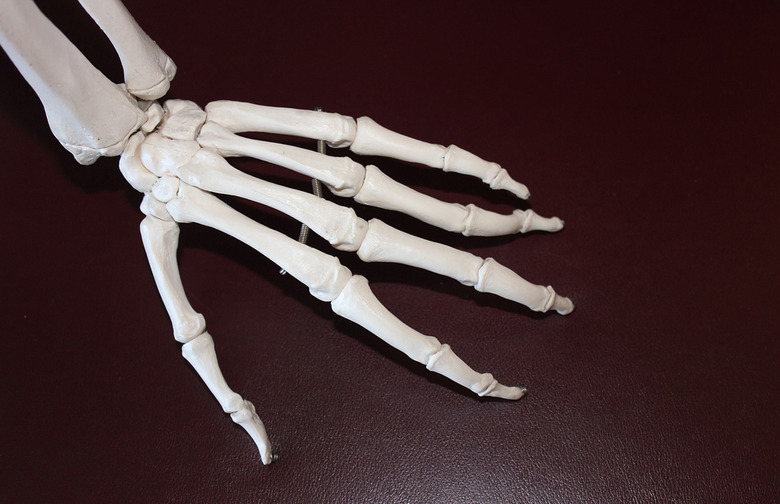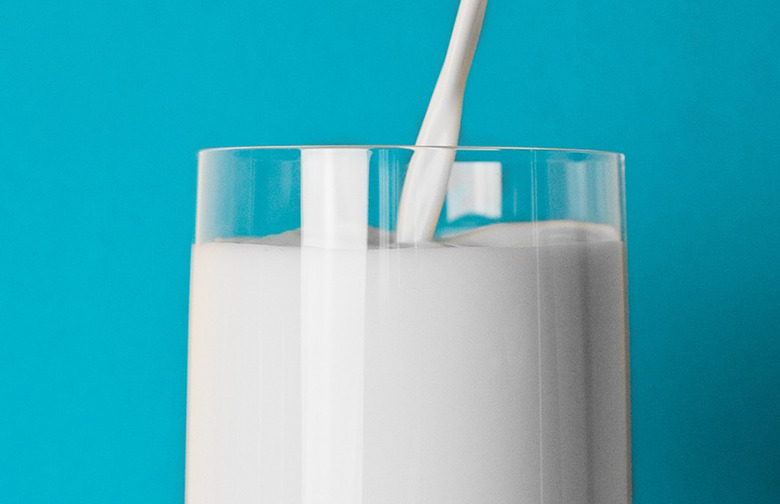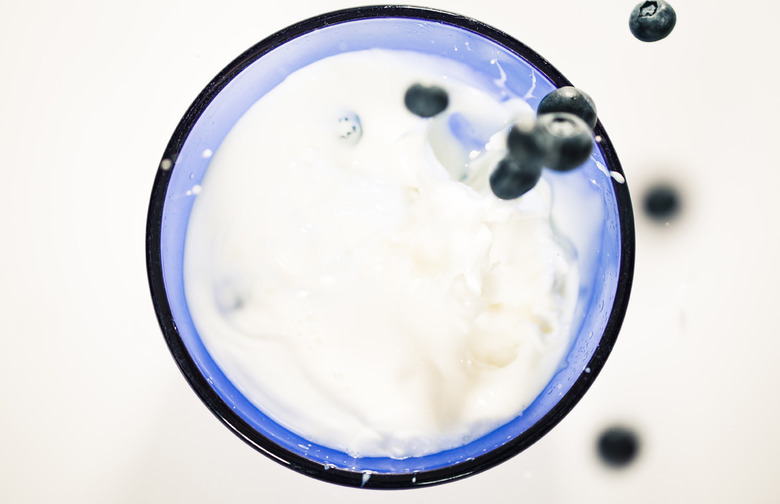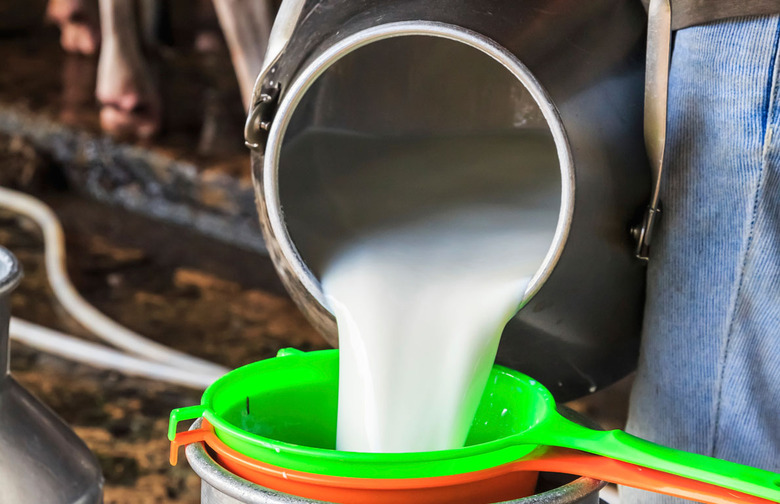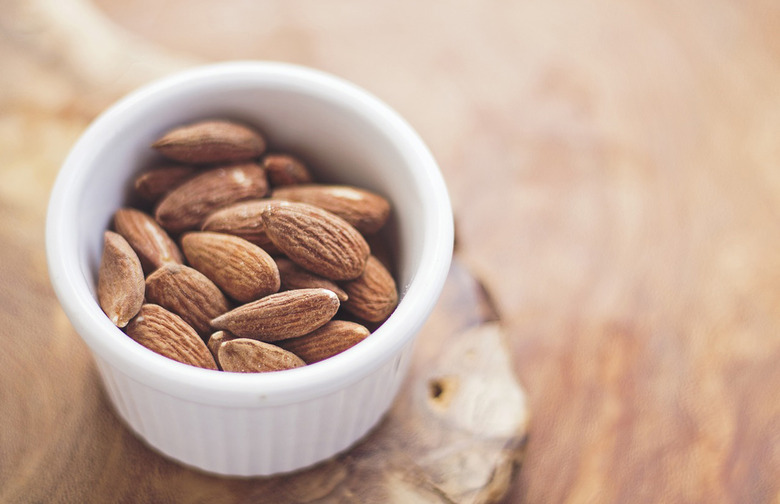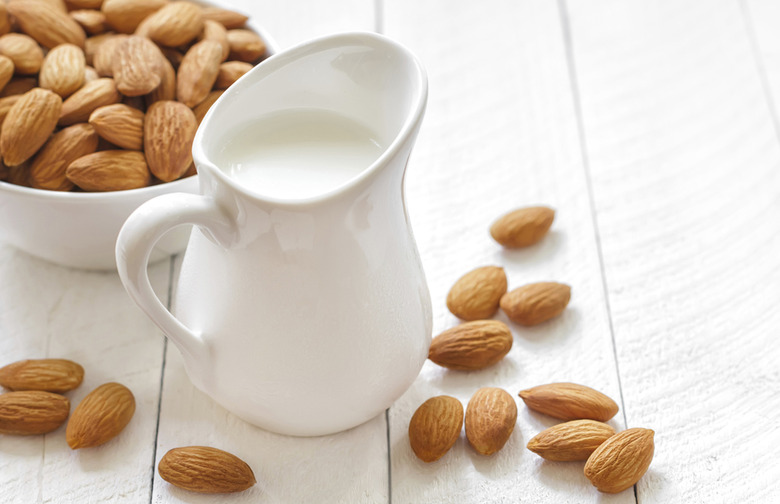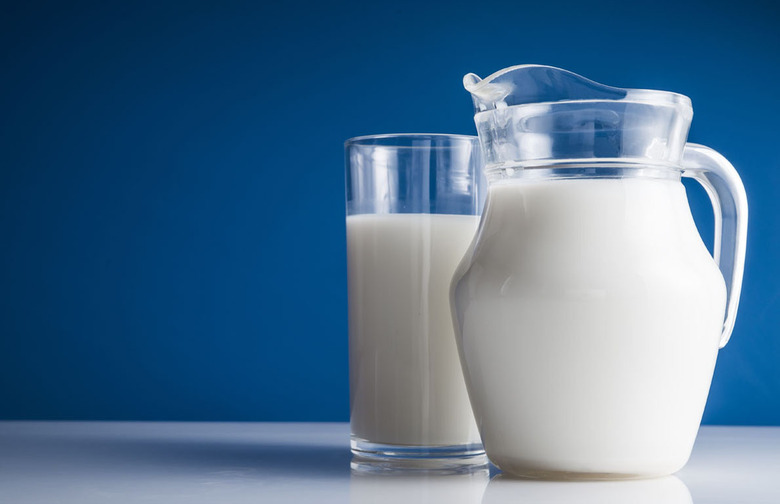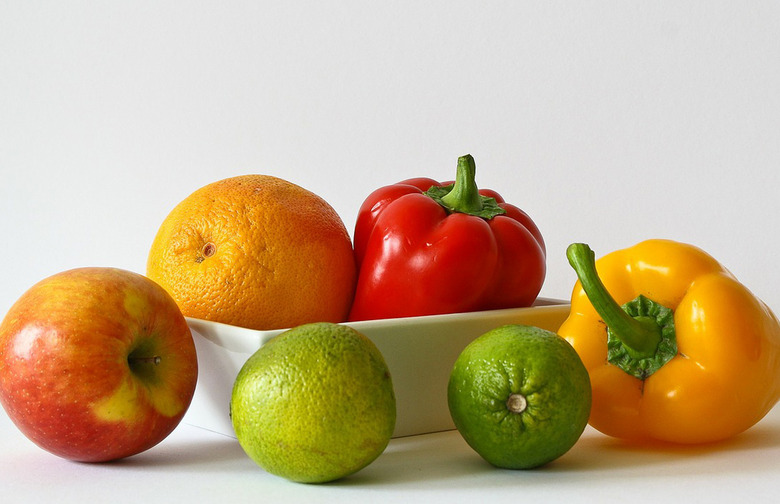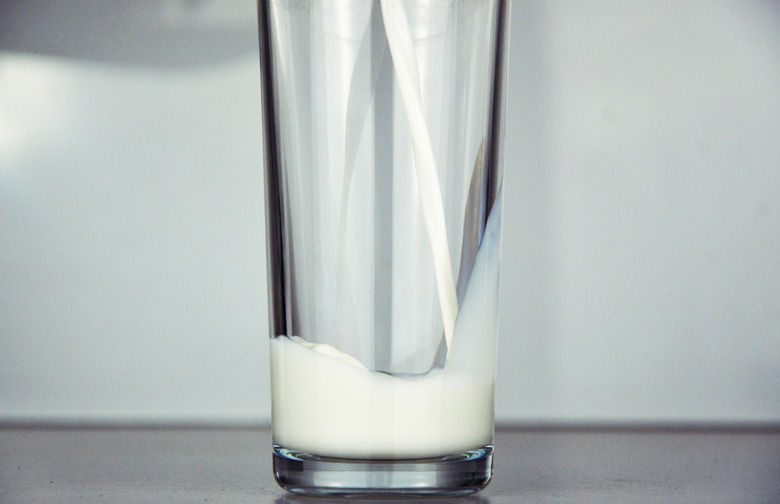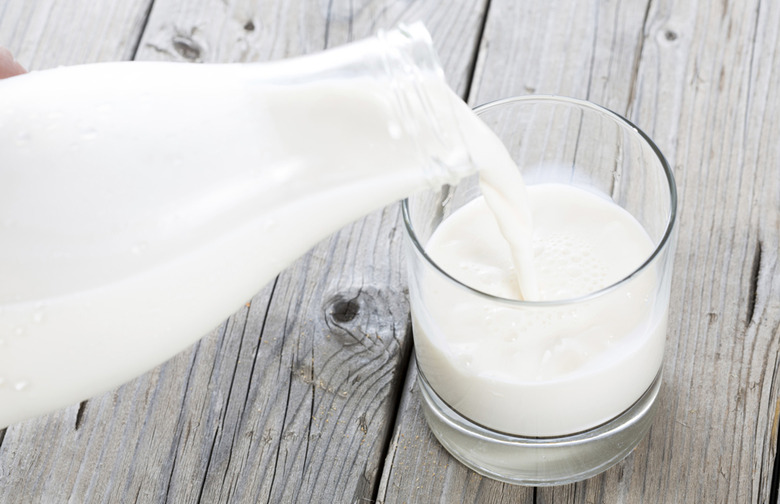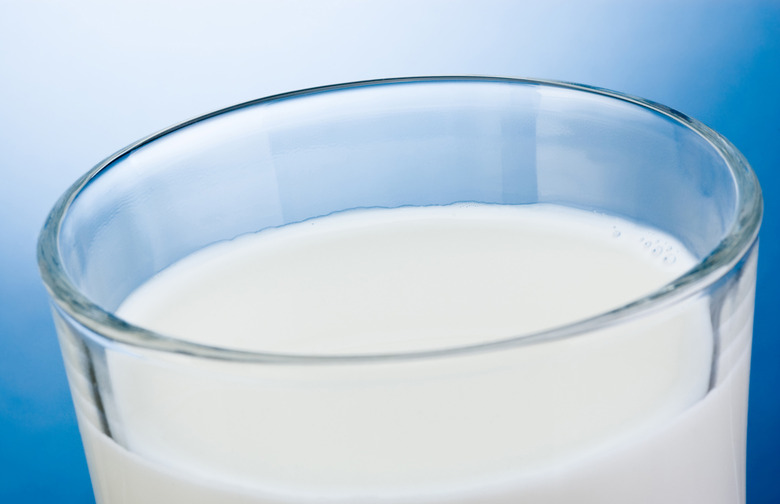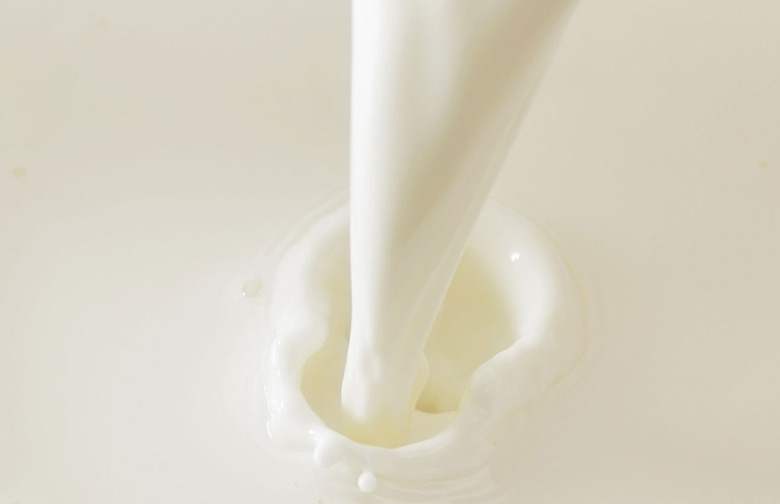Myths About Milk You Probably Thought Were True
Ah, milk. Aside from water, many Americans are told early on that milk is one of the only beverages they need to drink for better health. Did your mother or father ever announce that you couldn't leave the table until you had finished all of your milk? At the time, it may have seemed like torture. But in reality, your parents had your best interests at heart, and, as far as they were concerned, they were doing you a favor.
For many years, people have been under the impression that milk is the holy grail of nutritional beverages. Thanks to its hefty amount of calcium, protein, and appealing taste, it's almost as if this wonder-liquid is too good to be true. Surprise! It is.
If you've ever heard that milk is your best source of protein, your only source of calcium, and that humans are meant to drink it, you've been misinformed. These myths, among others, have made their way into the homes of American families across the country, only to be debunked by science years later.
Now, science has cracked many of the most common milk myths, and we're here to lay it all out on the table. (The breakfast table, that is.)
Read on for 10 of the most common myths about milk you probably thought were true.
Myth: Cows Need to Be Milked
Many people are under the impression that if a cow isn't milked regularly, its udders will become heavy and cause pain. It's almost as if people believe that somehow, when a human milks a cow, he or she is doing it a favor. Unfortunately, this isn't the case. Cows do not need to be milked, and if they're not milked, they aren't feeling any pain.
What Happens if the Cow Isn’t Milked?
Cows produce milk for their offspring. If the cow doesn't have calves, it will not produce milk. In order to keep them lactating (so they can be milked), many farmers impregnate them through artificial insemination. In other words, the milk we drink is not meant to be produced in the first place. If a cow is not milked on a daily basis, it is not a cause of discomfort.
Myth: Humans Are Meant to Drink It
Cow's milk is an exceptional source of food — for calves. According to best-selling author and founder of the Save Our Bones foundation, Vivian Goldschmidt, MD, a calf usually weighs around 100 pounds at birth, and then gains eight times its weight by the time it's weaned. Mother cows are constructed to cater to the calf in this way. In other words, the milk of a cow is meant for the calf, not the human. When the calf is done drinking the amount that it needs to grow, it doesn't drink it anymore. Unlike humans, once it's weaned, it never touches milk again.
Breastfeeding Is a Thing for a Reason
You may have known this already, but humans are the only animals known to drink milk from other species out of choice. It's quite simple: When a calf is born, it is meant to drink milk from a mother cow. When a baby is born, it is meant to nurse from its mother. Think about it this way: Would you let your baby nurse from a mother cow?
Myth: It Gives You Stronger Bones
Remember the days where you were a skittish little kid, begging your parents to leave the breakfast table and begin your day before you finished your milk? Chances are, you couldn't leave until it was gone. According to Huffington Post, the average American drank 20.4 gallons of milk per year in 2010. Why? Parents were convinced that it would help their children grow to be big and strong, therefore, they encouraged their kids to drink it as much as they could.
Science Says the Opposite
If you describe yourself as "big boned," we're here to tell you that it has nothing to do with milk. According to Goldschmidt, milk actually has the opposite effect. Goldschmidt says that milk (like all animal protein) acidifies the body's pH levels, which in turn triggers a biological correction. Calcium is a well-known acid neutralizer, and the biggest storage of calcium in the body is the bones. In turn, the same calcium that our bones need to stay sturdy is utilized to neutralize the acidifying effect of milk. The result? Calcium is pulled out of the bones.
Myth: It Isn’t Processed
Here's the thought process behind this myth: Milk comes from a cow. A cow is an animal; therefore, anything produced by the animal is natural. In conclusion, a cow's milk is natural, because it isn't made by man. Right?
It’s Processed
Nowadays, milking cows are given antibiotics or injected with a man-made growth hormone. According to Dr. Samuel Epstein, MD, Professor of Environmental Medicine at the University of Illinois School of Public Health and Chairman of the Cancer Prevention Coalition, this growth hormone — better known as rBGH — is something that should not be ignored. Epstein concludes, "Drinking rBGH milk would thus be expected to significantly increase IGF-1 blood levels and consequently to increase risks of developing breast cancer and promoting its invasiveness."
Myth: It’s Difficult to Find Alternatives
Many people are aware of the harmful effects of milk, but they continue to drink it because they feel as though it's hard to find a replacement. Or, if they do find a replacement, they're worried it won't taste like the real thing.
Taking Advantage of Coconut, Almond, and Soy Milks
If you're open to trying dairy-free milk alternatives, there are plenty of options available. Soy milk, for example, is commonly used as a replacement in cooking breakfast dishes, like oatmeal, or instead of a basic coffee creamer. Almond and coconut milk are some tasty options, as well. If you're worried about the taste, there are many choices to experiment with, such as chocolate, vanilla, sweetened, and unsweetened.
Myth: It’s Your Best Source of Calcium
According to the University Of California San Francisco Medical Center, a cup of one percent milk contains 300 mg of calcium. If there was nothing else on the planet Earth that contained calcium, then sure, milk would be your best way to get it. As you probably guessed though, it's not.
Calcium Comes in Many Colors
A single cup of dried, uncooked figs contains 300 mg of calcium. Figs are just one examples of fruit and that contain the same amount of calcium as a cup of milk; however, the list doesn't stop there. Rhubarb, tangerines, kiwi, limes, blackberries, raspberries, pink grapefruit, and lemons are also high in calcium.
Myth: It’s Your Best Source of Protein
Busting the protein myth yields interesting results. Healthy Eating reports that a cup of one percent fat milk contains eight grams of protein.
Protein, Protein, Everywhere
If you've ever wondered where a vegetarian or vegan gets all of his or her protein, the answer is simple: fruits, vegetables, and legumes. There are plenty of fruits and vegetables that are packed with protein, but legumes, like soybeans, are your best bet. Each cup of cooked soybeans offers 29 grams of protein. In addition, white beans and lentils contain about 19 grams of protein per cup. Needless to say, if you ever decide to lower your dairy intake, you won't be short on protein.
Myth: Skim Milk Is Healthier Than Whole Milk
We've said this before, and we'll say it again: You're kidding yourself if you think skim milk is actually healthy. Many people base their diets on calorie counting, in which case, skim milk makes more sense because it does have fewer calories than whole milk. In regards to everything else that relates to health, though, skim milk falls short.
If You’re Going To Drink Milk, Skip Skim
Many go as far as saying that whole milk is better for you than skim. "The fat in milk will slow down your digestion, which will help to keep you full," says Deborah Enos, certified nutritionist and board member of the American Heart Association. "The fat in the milk slows any potential rise in blood sugar."
Myth: You Should Drink It Your Entire Life
When someone suggests drinking less milk, people become worried about obtaining their daily dose of protein, calcium, and other nutrients. This concern is especially common in men, for some are concerned that if they stop drinking milk, they will have a hard time maintaining muscle.
Monkey Sees, But Monkey Doesn’t Do
Goldschmidt says that every mammalian species on this planet stops drinking milk once its young are weaned. In other words, when a baby is born, it should be nursed with the proper vitamins and nutrients to help it grow. However, as discussed above, milk is not the only way to obtain the proper nutrients, so as the baby matures, breast feeding is no longer necessary. A case-control study in the American Journal of Epidemiology found that drinking milk at a young age may even increase the risk of future fractures, showing that "consumption of dairy products, particularly at age 20 years, was associated with an increased risk of hip fracture in old age." Despite potential risks, Americans continue to drink milk through their 20s, 30s, and 40s.

